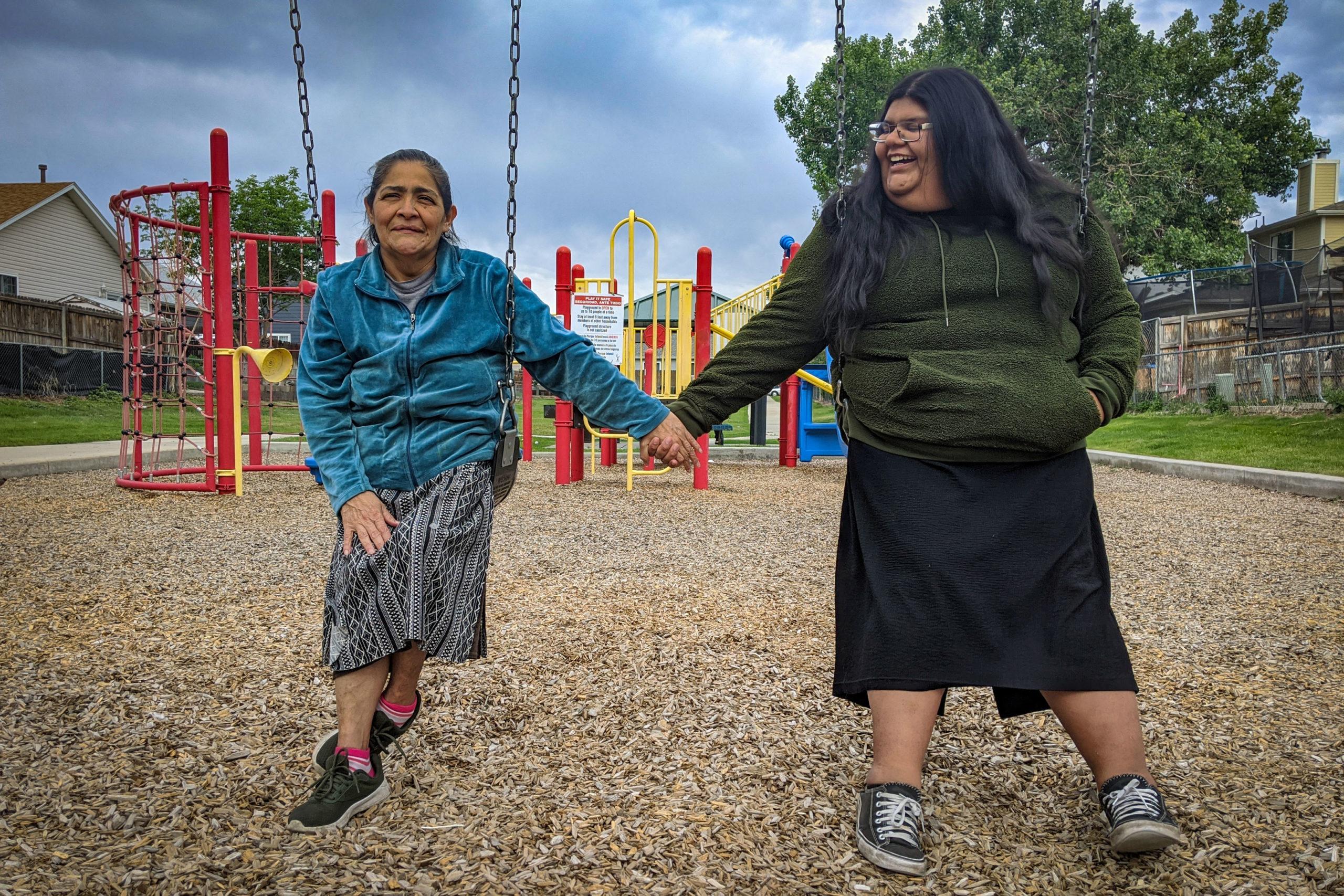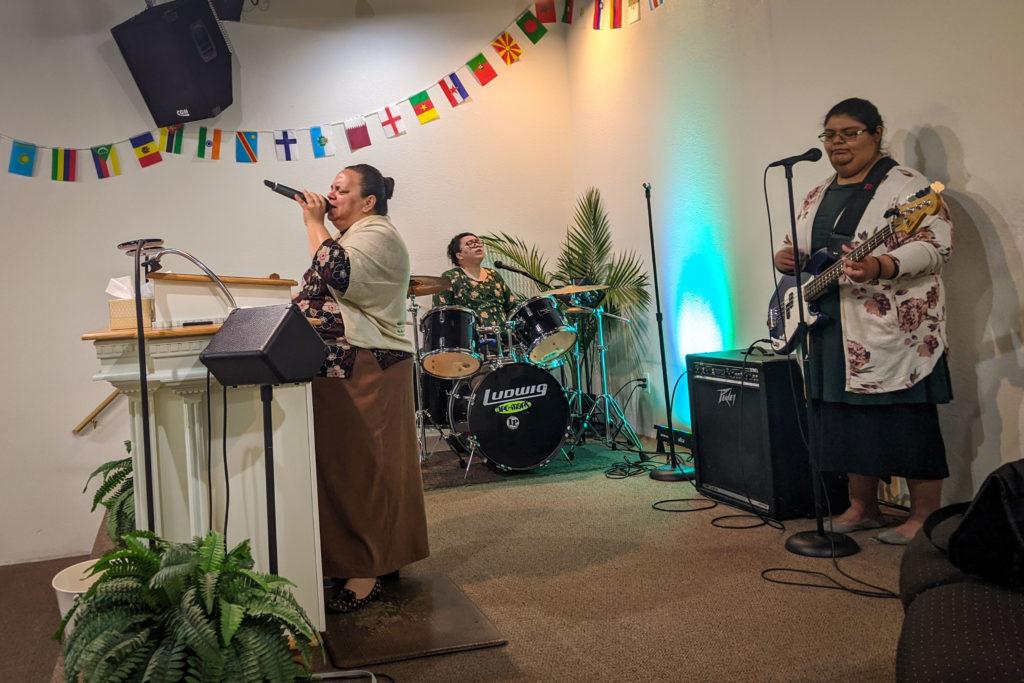
Katherine Aguilar is not afraid to name her mental health struggles.
At a park near her home in Commerce City, the 22-year-old explained her long battles with anxiety and depression. The conditions aren’t new for Aguilar. What’s changed is a double bind many mental health professionals have pointed out over the last few months. While the ongoing pandemic has caused distress, it’s also cut off the main ways people tend to cope.
“Right now it’s definitely hard,” said Aguilar, whom CPR News first spoke to earlier this year for Teens Under Stress. “Anxiety and depression and just everything that’s wrong with me. It’s tough.”
Growing up in North Denver and Commerce City, she faced hardships she describes as examples of environmental racism. The state bought an earlier family home to make room for the planned expansion of I-70 through Denver’s Elyria-Swansea neighborhood. Scientists worry the project will only degrade air quality in the largely Latino neighborhood, where asthma rates exceed the state average.
Their new home is about two miles from the oil and gas refinery owned by Suncor, which has a long history of air and water pollution incidents. Aguilar doesn’t know if those experiences affected the health of her or her family, but said the uncertainty added distress as she grew up.
Still, it was the death of her father, Humberto Aguilar, that pushed her into the full grip of depression.
He died in 2018 from complications of a long-term respiratory condition. Aguilar told his story last March, standing next to a Dia de los Muertos altar her family had made in his memory. The small table sits next to the front door, adorned with flowers, a bible and the cookies he always liked with his coffee.
After he died, Aguilar turned to therapy and medication to get through the worst moments of depression. She also sought refuge in art.
“I either write or draw to calm myself down,” she said.
Music also provided a release valve. Before the pandemic, she played bass twice a week in her church’s all-female worship band. Her mom would sit in the audience at Pentecostals of Aurora, watching her daughter from rows of folding chaired aligned before a small stage.
At the time, Aguilar said the work gave her a chance to step away from the concerns of her day-to-day life.
“Playing the bass, it just lets me breathe, just be present,” she said.

The economic downturn has intensified some of her earlier anxieties. Aguilar had been searching for a job before the pandemic since she was determined not to return to the fast food industry. She insists any office or retail job would do, but she just can’t seem to land a position.
“No one’s hiring, but I’m looking! I’m looking!” she said.
Today, the church has reopened and she has returned to the band, but she said it doesn’t offer the same comfort as before. She worries the virus could be lurking somewhere inside the congregation, waiting to infect her or her mom.
“I’m not going to lie,” she said. “It was very stressful. It added stress.”
Her family also plans another move after months of living in close quarters due to the virus. Katherine said she and seven other family members are now packed into their Commerce City home.
“It's been hectic. We just need our own place,” she said.
To deal with all of it, she kept up her practice of using art to give shape to her feelings. Lately, that has meant drawing out her dreams before she forgets them and then trying to unravel their meaning.
On the morning of her interview at the park, she dreamt of herself as a ghost determined to help others. The only catch was every time she succeeded in assisting someone, she’d become invisible to them. She had to find someone in need of help to become part of the world again.
While she isn’t sure exactly what the dream is about, she suspects it’s connected to her fears of feeling unhelpful. She said that’s partially why she wants a job so badly. After months of mostly staying home, it would help her feel seen to have a schedule and a paycheck.
Katherine’s mother, Holiday Aguilar, who joined her at the park insisted it’s only been good to have her daughter at her side during the pandemic.
“I don’t know about you, but for me, yes,” she joked in Spanish.
It’s not exactly the kind of validation Aguilar has been looking for, but she said it will do for time being.









